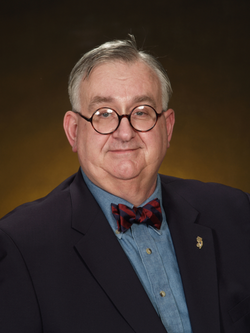Here we are at the beginning of another new year. As is my custom, let me offer you my best wishes for a Safe and Happy New Year. Every year it is the same. 2011 was no different. We had the usual array of successes and failures. Our convention team hit a wide array of locations around the country. We met people and offered our advice.
Some listened and liked it, others did not. However, we spent a great deal of time listening and learning from the people we wish to serve. One of the important things we learned was that there was a need for more training. We are working to protect those people in the fire and emergency medical service world, law enforcement and the towing community who charged with operating on the highways and byways of our nation (and others whenever possible).
On Thursday January 5, 2012 the Cumberland Valley Volunteer Firefighter's Association (CVVFA) convened a special meeting in Lambertville, New Jersey. People from Delaware, New Jersey, Pennsylvania, New Hampshire, Connecticut, and Maryland came together to create a new basic training course for those people charged with operating as fire police. We also had representation from the National Fallen Firefighter's Foundation.
For those of you who do not have fire police in your area, these are members of their local fire department who have been designated to handle traffic control duties within their communities. The purpose of this meeting was to gather the requisite knowledge and options for what subjects are needed for the creation of a standardized basic training course which could be delivered in the on-line environment provided by the Respondersafety Learning Network. This course has a basic working tile of Introduction to Traffic Scene Control and Fire Police Operations.
It is our intention to create a program which has a consistent message and content which can be widely used. Our focus group discussed a number of highway safety operational issues in great detail by the folks in attendance:
- A basic understanding about how dangerous directing traffic can be. (Safety)
- Are the people selected for fire police duty physically able to perform their assigned duties? (Physical)
- Do fire police people have a proper understanding of their duties and responsibilities? (Professionalism)
It was the consensus of the people at our session that any member who operates on the highways of their district needs to be aware of the basic safety problems and activities to insure that they are prepared to face the dangers of safe highway operations. A whole range of information regarding the various skills needed for people to do their jobs in the highway environment of their response district will be provided as part of our training programs. We intend to be the advocate for best practices in the area of safe highway operations.
We at the Emergency Response Safety Institute (ERSI) of the CVVFA are excited about the potential for spreading our message farther outward throughout North America. Everyone fire, police, EMS, and towing vehicle operator must be trained to safety perform their highway-related duties. If we prevent one person from being injured or killed, then we will have done our job to train people to return safely to their homes and families. My friends, we believe that keep people safe on our highways and byways is the main reason for all that we do here at Respondersafety.com.


